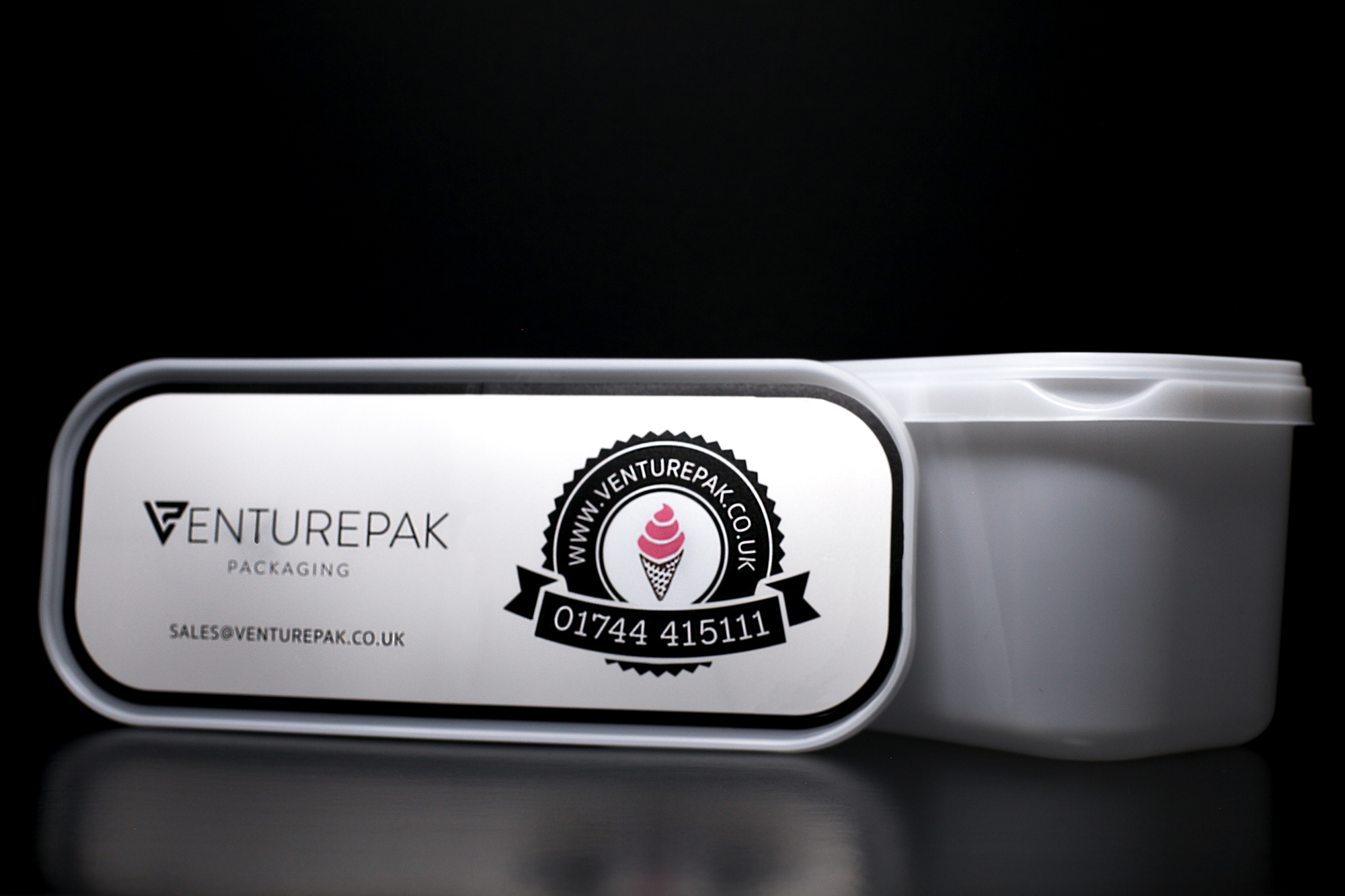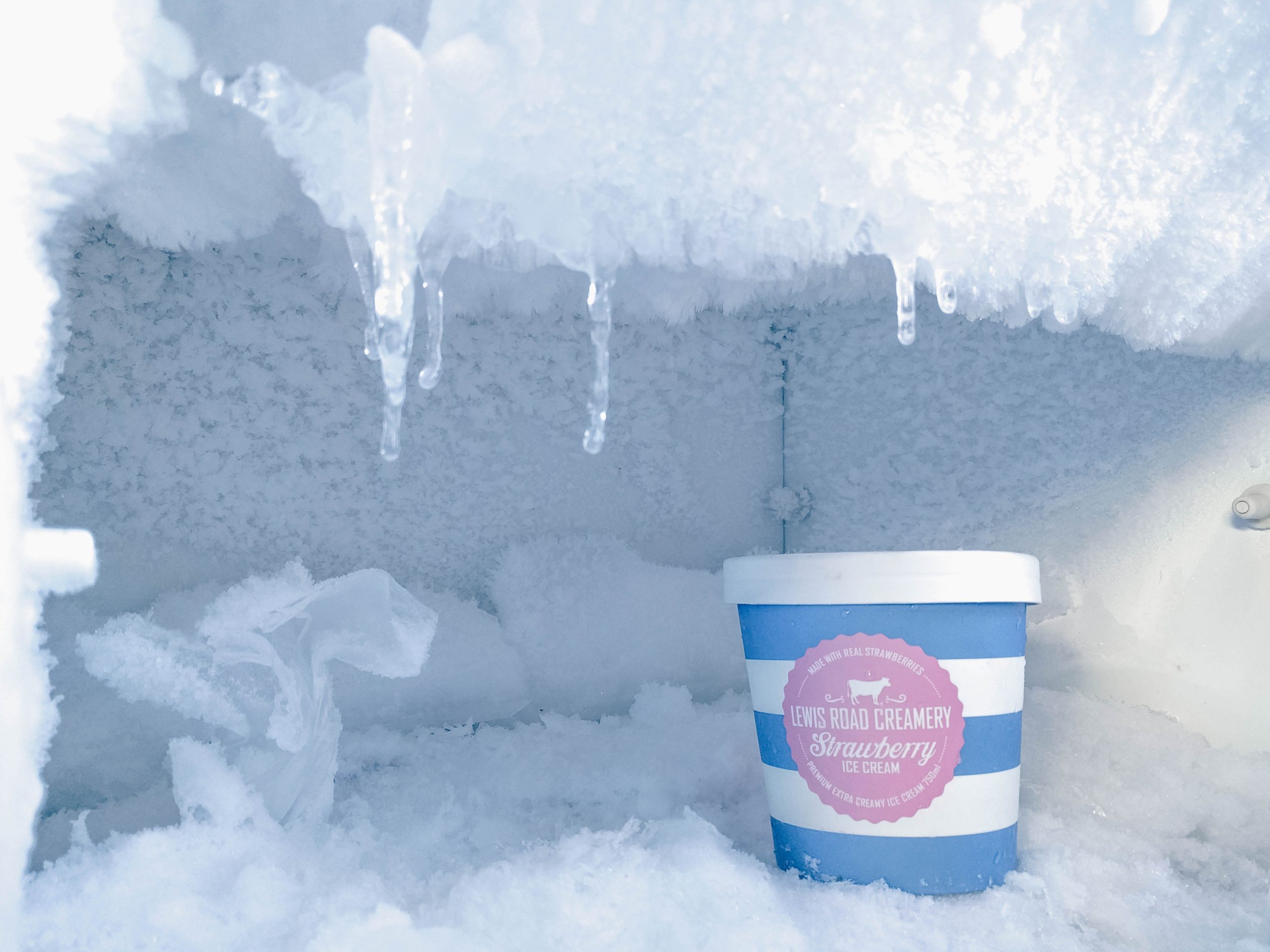If you are in the food business, you can equip yourself with specific items that will give your ice cream greater longevity if your freezer no longer has power, so all is not lost.
We all know that ice cream needs to be kept cold, but how cold?
Well, ice cream needs to be stored at a specific temperature of between -12°C (10°F) and -20°C (-4°F). Any colder and ice crystals will form, causing it to lose its creamy texture and become grainy; too warm and it will melt.
Hence, if the power goes off on your freezer, one of the first things you need to worry about is your ice cream.
The good news is that if you are prepared for this eventuality and find yourself in the middle of a power cut with a freezer that has stopped working, you can do something about it.
First, you have nothing to worry about if your ice cream is kept in the right kind of container and the freezer is only off for an hour or so. In that scenario, the freezer is unlikely to get cold enough for the ice cream to melt.
However, it is another story when a power failure lasts for hours.
Alas, if your ice cream melts then unfortunately re-freezing is not an option as the ice cream will lose its texture, the taste will be affected, and there could be a risk of food poisoning.
Power cuts have been more frequent in the UK since 2022 thanks to factors such as the Covid pandemic and increased cost of energy, but the Electricity System Operator (ESO) – the body responsible for ensuring there is enough power to meet demand – has suggested that it’s cautiously optimistic about this winter (2023-24) compared to the previous year.
However, power outages can also be caused by situations including planned maintenance and environmental factors like high winds, lightning storms and heavy floods – all of which the UK can experience in winter.
It makes sense that you should take steps to gear up for such eventualities.
How long will ice cream last in a freezer without power?
Restaurants and catering operations can ill afford to lose stock, especially a luxury item like ice cream.
The good news is that if you use an appropriate container for your ice cream and you store it correctly, it could last for up to eight hours, maybe more if you use dry ice or blocks of ice to help retain the temperature of the freezer at between -12°C (10°F) and -20°C (-4°F).
The ice cream containers supplied by Venturepak are heavy duty, recyclable and include lids that ensure your ice cream remains airtight.
They are designed to ensure your flavour-packed chef’s ice cream retains its flavour and texture, and they can be a major asset when there’s a sudden power outage and your freezer no longer works.
If the worst happens you should:
- Ensure the ice cream is stored in an airtight container at the back of the freezer
- You should pack the sections around it as tightly as possible as this will help to keep your ice cream cold
- Keep doors closed, and do not be tempted to keep opening them to check on whether your ice cream is melting. If you do this, then your ice cream can be kept for up to eight hours
- You could wrap your freezer with thick blankets if your freezer is freestanding as this will provide insulation and keep the interior of the freezer colder for longer
- Use freezer and gel packs to help keep your ice cream cold if there’s a power outage
- Businesses may also consider buying dry ice or blocks of ice as a contingency plan as this will ensure that the ice cream does not thaw out
Can you re-freeze ice cream if it has thawed in a freezer without power?
It’s not good news if your ice cream has thawed during a power outage because it isn’t one of those frozen confections can survive after it has melted.
There are reasons why you can’t re-freeze it once this has happened. The biggest is that it could be contaminated and the last thing anyone in the food business needs is to give their customers food poisoning.
This is because it is usually made from dairy ingredients and eggs, which are likely to be prey to harmful bacteria once they are exposed to warmer air for a period of time.
Unfortunately, once ice cream has melted it should be thrown away.
At Venturepak, we pride ourselves on our expertise when it comes to packaging, so if you are looking for the perfect container for your ice cream, look no further.
Our ice cream containers are made from superior recyclable materials and are designed specifically to keep your frozen treats cold.
They are the perfect choice if you are looking for storage solutions for your ice cream.
Of course, we cannot guarantee that our containers will prevent your ice cream from spoiling should you be unfortunate enough to find yourself in the middle of a power outage, but as a kitchen essential they will keep your ice cream perfectly frozen.








